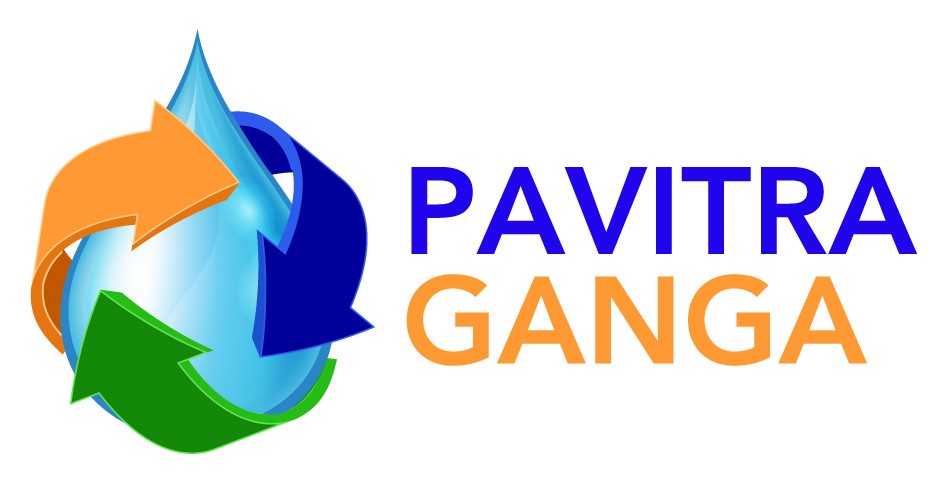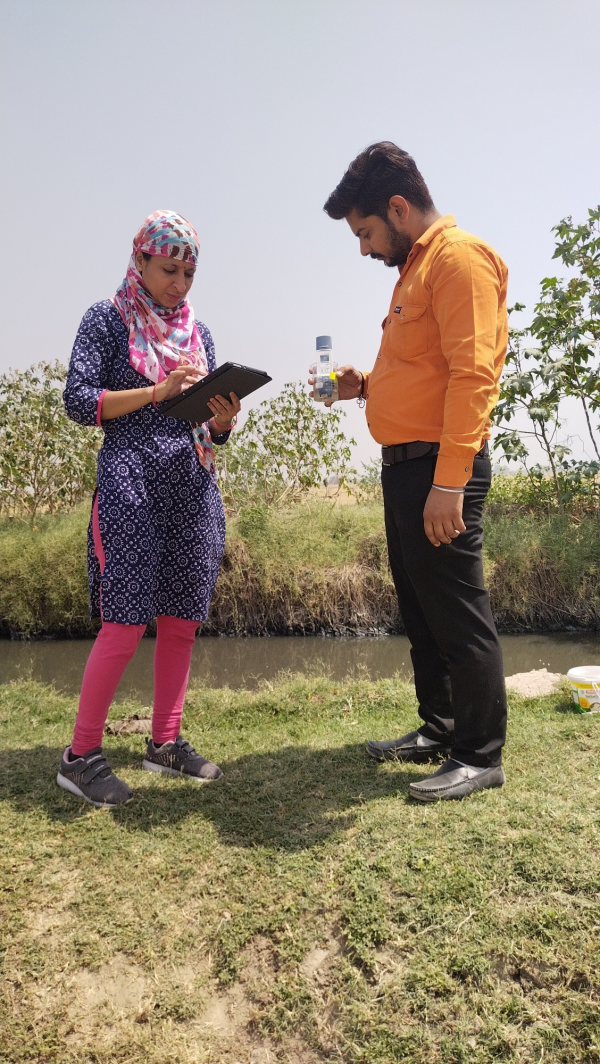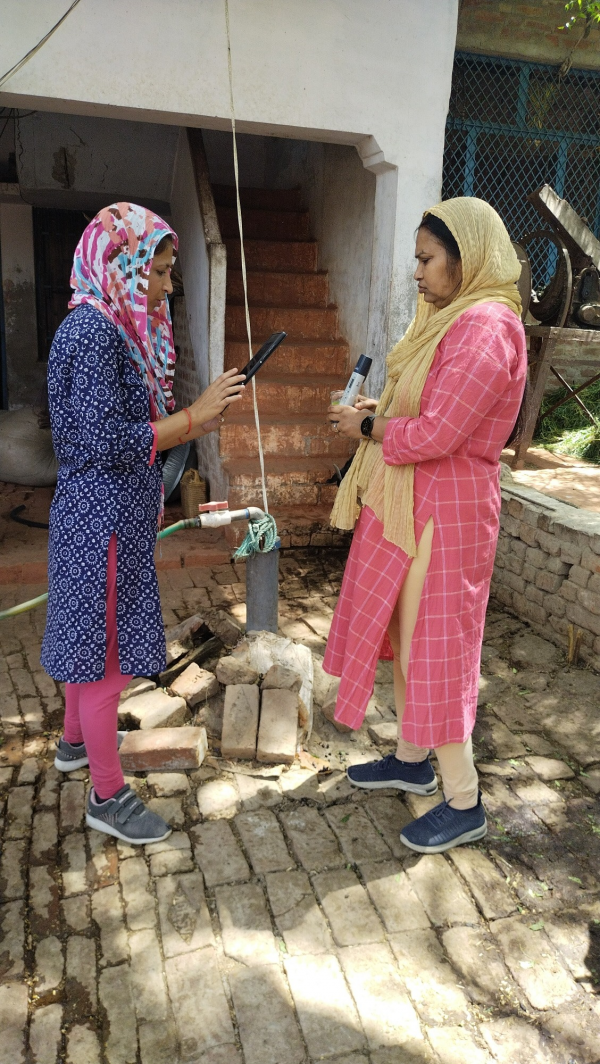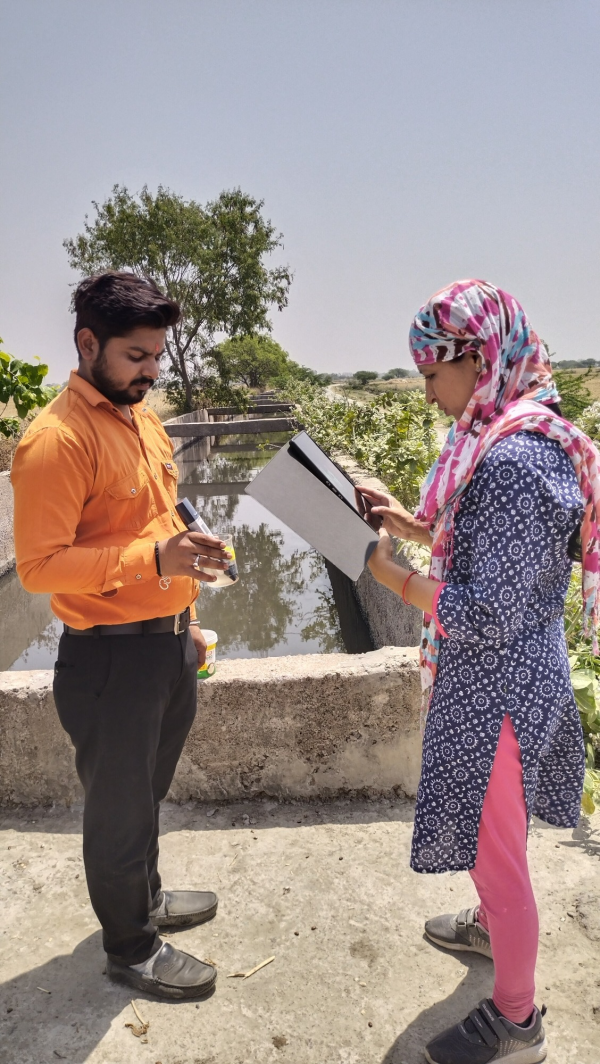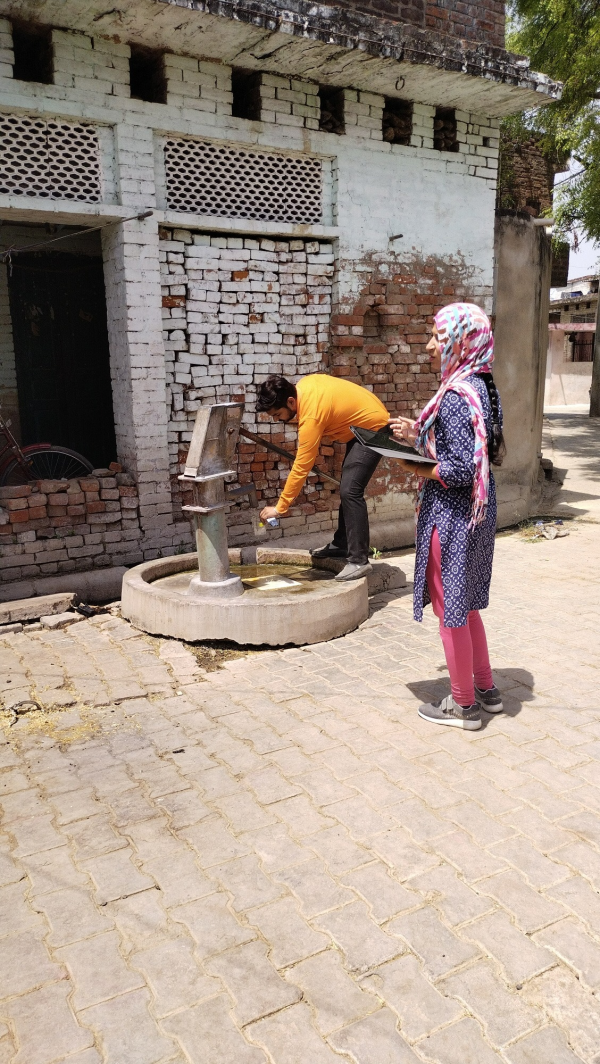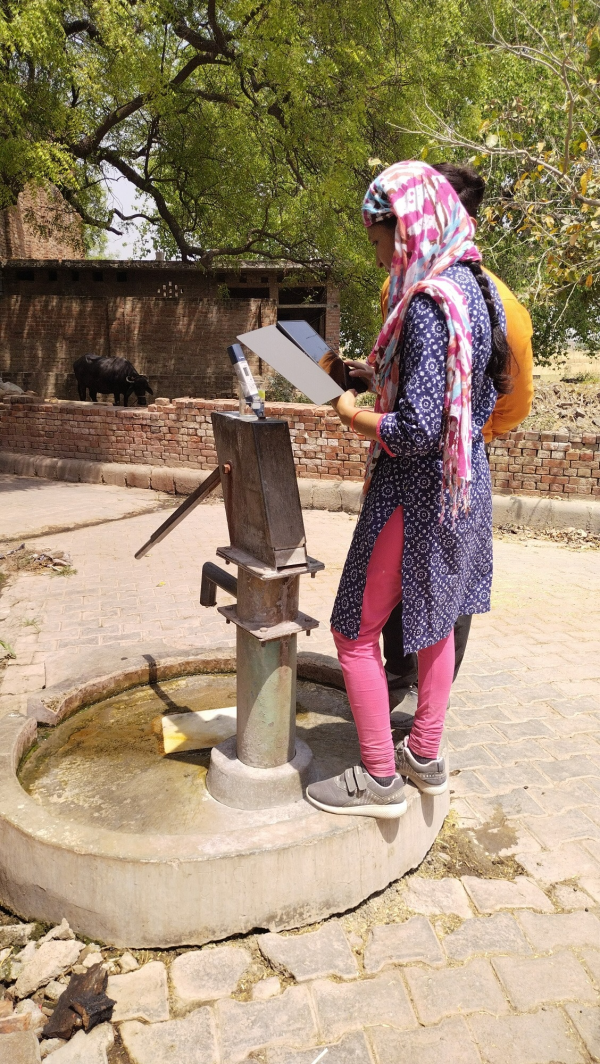In April 2022, a baseline survey to assess possible water-related microbial health risks was carried out in three villages receiving treated wastewater for irrigation from the STP and CETP at Jajmau, Kanpur. The survey is a part of the approach to develop wastewater safety plans together with the stakeholders to assess, prioritise and mitigate health exposure risks.
The three villages represent a “transect” across the irrigation area:
- Alaulupur: concrete lined irrigation canal
- Kulgaon: earthen irrigation canal
- Lalu Kheda: no irrigation canal
The survey included a village mapping exercise to assess possible water-related microbial health risks from different village water sources, such as handpumps, wells, irrigation channels, etc.
It was followed by household surveys to understand practices, perceptions on water use, the availability of sanitation facilities, along with the exposure frequency to the water sources.
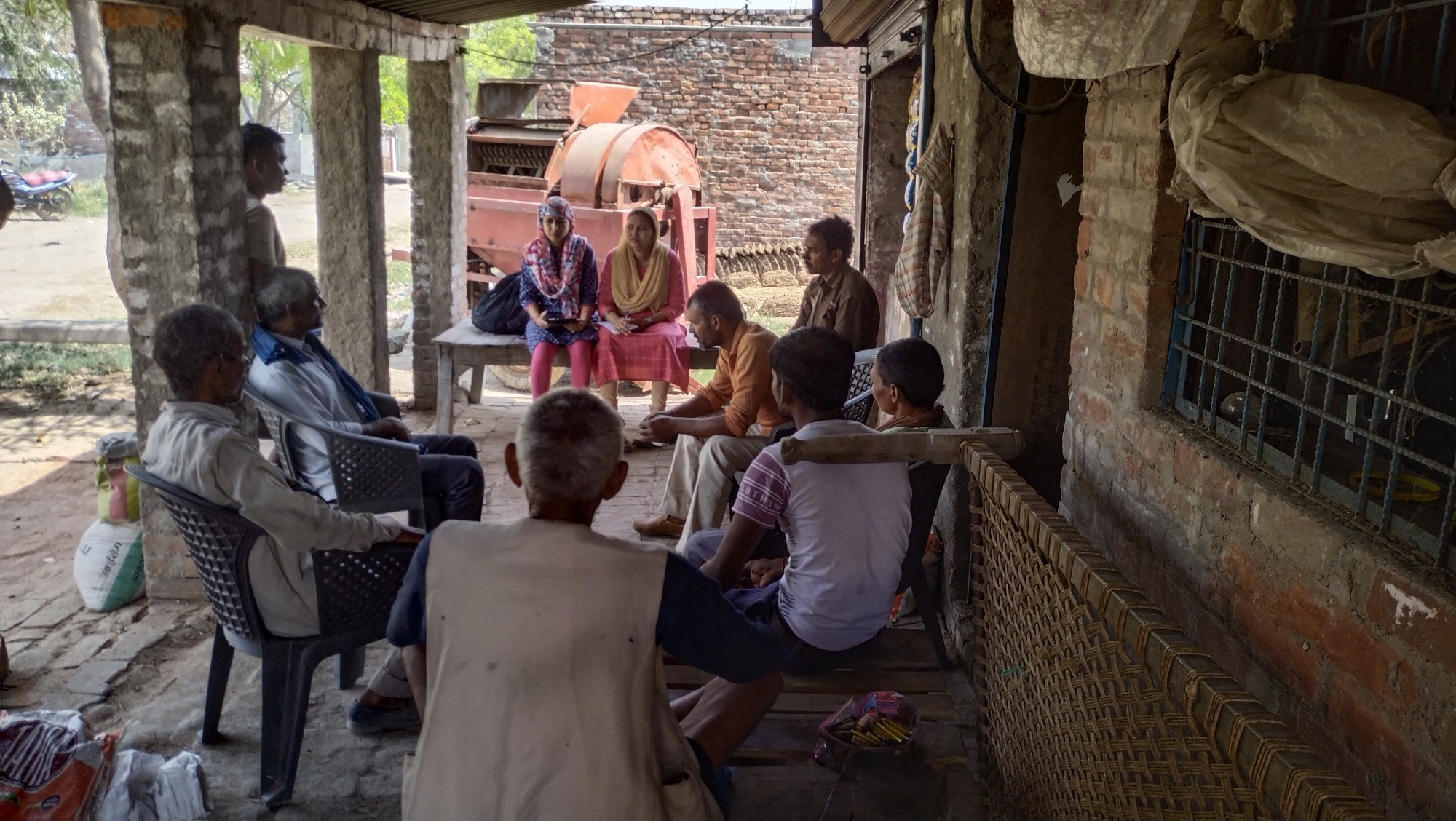
E. coli monitoring
The initial surveys were complemented by E. coli monitoring of selected water sources in the three villages (for each village five drinking water and five irrigation water sources).
To account for potential seasonal variation of microbial contamination, the sampling campaigns started early September 2022 (monsoon season) and ended end of November 2022 (post-monsoon season).
From left to right: Solidaridad surveyors taking measurements at an earthen canal in Kulgaon, at a borehole with a submersible pump and at a concrete canal, both at Alaulupur village
Solidaridad surveyors taking measurements at a hand pumped open well at Kulgaon village (left) and at a hand pumped open well at Lalu Kheda village (right)
Aquagenx bag tests
For E. coli monitoring Aquagenx compartment bag tests (CBT) EC MPN were used. The test kits allow for rapid and robust E. coli testing (MPN/100mL) using an easy color match scoring without lab equipment. For wastewater samples, four to five-time dilution series were applied and the results were validated with standard E. coli plate counting at the IIT Kanpur laboratory by an IHE Delft Master student.
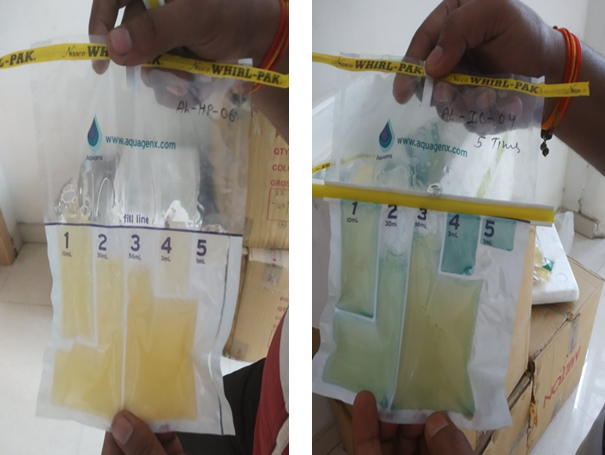
The CBT is very easy-to-use, affordable, has a long shelf-life, and is able to detect the presence or absence of E. coli as well as indicating whether the risk is low, medium or high based on a Most Probable Number (MPN) and the WHO-risk methodology.
Results of the baseline and village mapping survey and E. coli monitoring will feed into semi-quantitative health risk assessments for villagers following the World Health Organization’s guideline (‘Sanitation Safety Planning’, WHO 2015). Ultimately, mitigation measures for identified health risks of water-related microbial diseases will be developed and discussed with the villagers.
Solidaridad
The surveys were outsourced to Solidaridad, an international non-profit organization actively working with farmers in the area. The baseline and village mapping surveys as well as the monitoring campaign were designed and developed by IHE Delft and FHNW (University of Applied Sciences and Arts Northwestern Switzerland).
Akvo
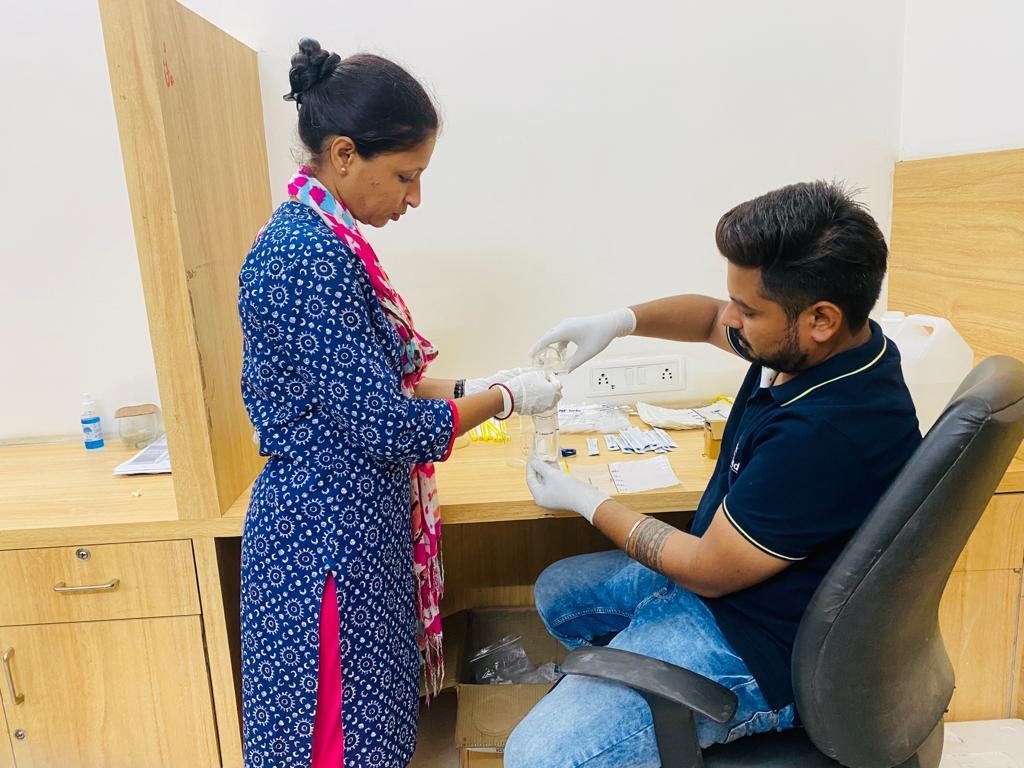
Data collection was greatly facilitated by Caddisfly, the mobile monitoring tool from Akvo. Akvo Caddisfly is a simple, open source, smartphone-based water quality testing system connected to an online data platform. Results of water quality testing and questionnaire surveys are visualized by Akvo’s online dashboard.
Next steps
The plans going forward are to use this information to prepare the Wastewater Safety Planning workshops at the Chennai IWA Conference in January 2023 and to extend aspects of the surveying approach to other villages receiving treated wastewater for irrigation from the STP and CETP at Jajmau.
